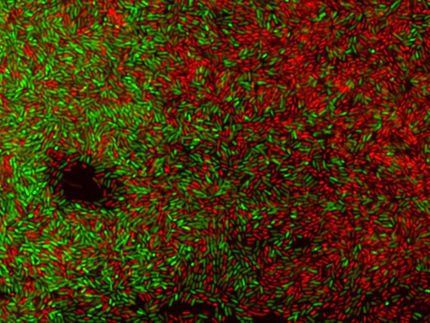USDA NIFA Workshop Report on Toxic Elements in Food is released
UMass Amherst contributes to understanding of toxic metals in the nation’s food supply
There is great interest in reducing exposure to toxic metals in food, particularly for infants, young children up to the age of five and women who are pregnant and/or lactating. Recent Congressional reports on baby food and toxic heavy metals have highlighted the significance and severity of toxic metals’ presence in many food commodities. The USDA National Institute of Food and Agriculture (NIFA) awarded funding to Om Parkash Dhankher, professor at the University of Massachusetts Amherst’s Stockbridge School of Agriculture, and Jason C. White, director of the Connecticut Agricultural Experiment Station (CAES) and an adjunct professor in the Stockbridge School of Agriculture, to conduct a workshop entitled “USDA NIFA Workshop on Toxic Elements in Food: Identification of Critical Knowledge Gaps to Ensure a Safe Food Supply.” The workshop was held virtually on April 4 – 5, 2022 and included 35 subject-matter experts from around the country, as well as 40 participants from the USDA NIFA, the US Food and Drug Administration (FDA), the US National Institutes of Health (NIH), and the food industry.The report from this workshop has now been authorized for release by USDA NIFA.

symbolic picture
Comupter generated Picture
The workshop report identifies critical research, education, extension needs and knowledge gaps, and advances our understanding of key issues and opportunities, including mitigation of toxic element contamination of the food supply to ensure food safety. The workshop and report are part of the “Closer to Zero” initiative of the USDA, FDA, and other federal agencies. The report also provides important recommendations to USDA across several thematic areas, including:
- Soil chemistry, soil amendments, and microbiome interactions with toxic elements
- Plant uptake and accumulation of toxic elements
- Multidisciplinary concerns such as food Processing, detection/sensors, nutritional status-metal interference/ traditional knowledge
The recommendations from the workshop’s panel of experts includes establishing a new transdisciplinary “center-like” funding mechanism within USDA NIFA similar to other federal agencies such as the National Institutes of Health (NIH) or the National Science Foundation (NSF). According to White and Dhankher, “this level of resource commitment from USDA will enable sufficient transdisciplinary research and understanding to avoid and mitigate toxic metal contamination of food.” The report also recommends increased funding for extension and outreach services to increase public awareness over the risk of metal exposure in food, exploration of modern genetic approaches to develop new varieties with reduced metal distribution to edible plant tissues, as well as the strengthening of regulatory systems at the national and international level that are predicated on common global science-based standards.
Other news from the department science
These products might interest you
Most read news
More news from our other portals
See the theme worlds for related content
Topic world Food safety
Food safety is at the heart of the food and beverage industry. It ensures that the food we eat every day is not only nutritious, but also free of harmful contaminants. From field to plate, the industry monitors and regulates every step of the process with strict quality controls, advanced testing methods and continuous research.

Topic world Food safety
Food safety is at the heart of the food and beverage industry. It ensures that the food we eat every day is not only nutritious, but also free of harmful contaminants. From field to plate, the industry monitors and regulates every step of the process with strict quality controls, advanced testing methods and continuous research.































































